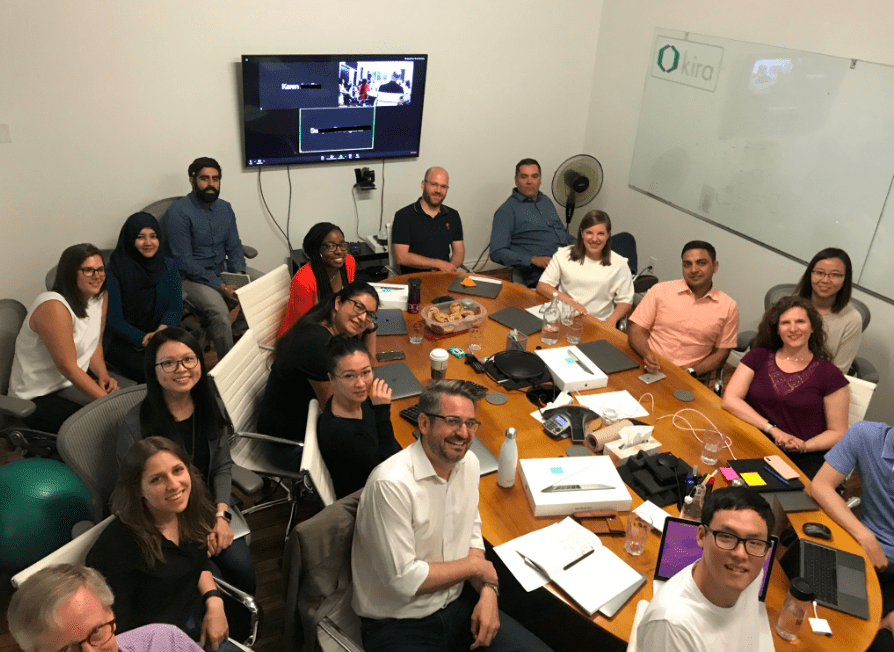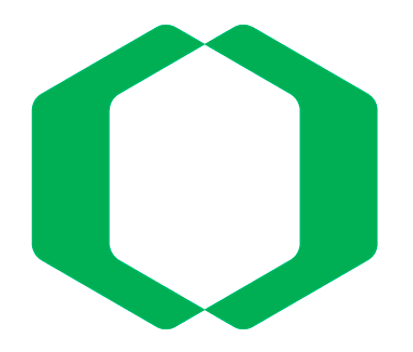
Kira Systems is one of the key pioneers of the legal AI sector and is among a handful of dominant players in the constantly growing and evolving contract review space. Artificial Lawyer had the opportunity to meet with its co-founder and CEO, Noah Waisberg (pictured above) in London, to find out how the company is doing as we enter the summer of 2018.
How have the last couple of years been?
They have been good. We have significantly expanded. Our team went from 35 people in January 2017 to 100 people today. That’s pretty good for 18 months, especially considering that we have not taken any outside funding. We have grown a fair bit bigger than many of our competitors, some of whom have received lots of outside capital.
There is a simple reason for this growth: increased numbers of people pay to use more of our [legal AI] software.
We have really seen our client base take off, and we have had some great successes with renewals, such as with [UK-based global law firm] Freshfields recently. They renewed because they decided they were happy with the software.
Overall we have now about 90 subscribing clients. About 75% of these are law firms.
[N.B. Kira Systems counts its clients in two ways: those that are proper subscribers, and those who perhaps may just be testing the system and paying to do so. Only full subscribers are counted in the figure above.]
Today there are more legal AI doc review companies, but our revenue has expanded by more than 100% in 12 months. Last time I checked there were about 2,000 active projects per month run on Kira.
We are hiring rapidly across the company and across levels of seniority; we even recently added a SVP for HR!

Are law firms changing how they see or use legal AI systems, such as for doc review?
Yes, there is a lot of change – but it’s firm by firm. I’ve noticed some growth of scepticism driven by inflated claims about firms using AI systems. That said, I’ve found scepticism outweighed by contract analysis software increasingly viewed as mainstream and ‘market’.
I believe this is driven by users (lawyers, plus the KM and IT crowds) telling their clients and peers at other firms how they are using contract analysis software. As you get more senior people who are credible – not tech cheerleaders – talking to other firms about it, it really helps drive adoption.
I believe that eventually lawyers will not look at contracts without software like this and it’s just going to be ‘normal’.
How are GCs responding? Are they really pushing for change?
It’s company by company. Some push it [i.e. the use of AI systems], some don’t.
Some companies are not that pushy in general. Some feel they can’t tell the law firms they use how to do their work.

If you’re the 100th most important client to a Big Law firm then maybe you don’t feel you can influence how your firm works. But large industrial and financial businesses, for example, are good at pushing their law firms, and this includes pushing them to be more efficient.
And private equity firms? They seem less focused on their lawyers’ efficiency, as most of the money they spend on legal fees does not come out of their own pockets.
Overall, I don’t think law firms are trying to do work inefficiently. While some firms may be consciously inefficient, I’ve found many really care about working better. For example, I’ve noticed that many high-end firms seem to be trying to do work as well as they can, but are still sometimes slow to change a process they trust.
What are the limits for automation in the legal world? How far can this go realistically in the next five years?
Again, it’s firm by firm. For some law firms, using Kira is already the default way they review contracts. I think we will see more firms that standardise on better ways to do contract review (sometimes also including more structured processes and different people), and using this better way in nearly every transaction they do.
We are seeing lots of law firms use the software in areas beyond M&A (which was our initial focus). Contract analysis is a staple of much corporate lawyer work, and so it makes sense to see all sorts of corporate lawyers using the software to help. Other contract areas include real estate, banking, and employment, and also well beyond, such as Weightmans’ recent announcement of their use on insurance documents. We are also seeing lots of use in languages other than English, and I expect contract analysis is going to be commonplace around the world.
Among corporates, there are huge opportunities for automation. Many companies don’t even have a contract management system. And those that do are not always collecting much data in them. A big reason for this is that it is very costly and slow to populate a contract management repository manually.
[N.B. Waisberg mentions the difference between two large tech companies, one that collects dozens of data points for analysis from its contract stack, another that only just scratches the surface of what’s in their contracts.]
In the future most companies could be extracting [with the assistance of automated review tech such as Kira] 80 to 100 data points from every contract. There is huge potential to enable companies to get more information from their contracts.
Would it be fair to say US law firms are less enthusiastic about automation of legal tasks than in other markets? And if so, why?
Yes, the US is different. It has been a bit slower [to adopt]. The UK is more focused on legal innovation.
But the US is coming along, and has changed a lot over the years. In fact, US adoption over the last year was a big driver of our growth. Five of the Vault Ten firms (such as Davis Polk) now subscribe to Kira. In fact, we now have more US than UK law firm subscribers, and we already had quite a few UK HQ’d ones.
Last question: where is Kira headed now? Do you intend to remain privately owned?
We will just continue to expand.
We will remain privately owned for now. We constantly evaluate the potential need to add external capital and it’s true that we do talk to people in the investment world.
It would be presumptuous of us to think about an IPO at this stage, and I don’t think we will be selling out anytime soon, unless someone offers an outrageous price.
For now, we [the founders] plan to remain the majority owners.
Thanks for your time, Noah, and good luck to you and everyone at Kira Systems!
3 Trackbacks / Pingbacks
Comments are closed.